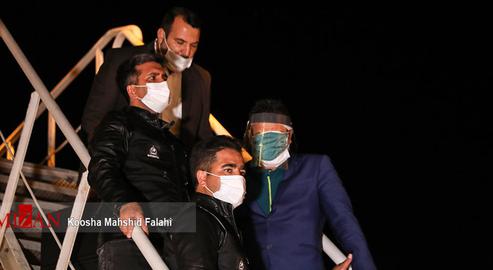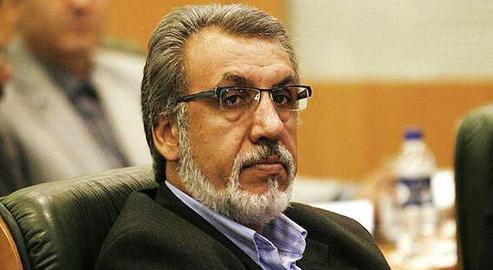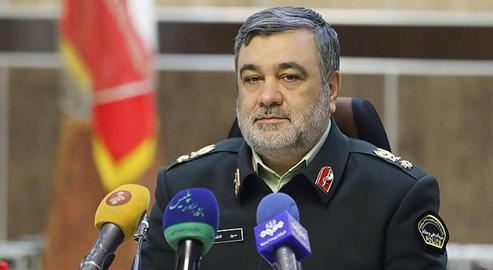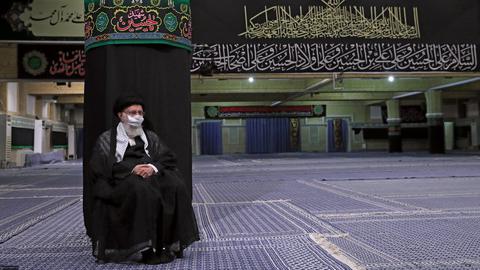In mid-October Iranian state television announced the successful extradition of Alireza Heydar Abadipour, the scandal-hit former head of Sarmayeh bank, from Spain back to Iran with the cooperation of Interpol. Heydar Abadipour arrived back in Iran on Wednesday, October 15, after being convicted in absentia of overseeing the mass embezzlement of tens of thousands of Iranian teachers.
The news has revived questions over other Iranian nationals who are wanted by the regime but who have – as yet – not faced extradition. Among them is Mahmoud Reza Khavari, the former chairman of Melli Bank, who has been living as a fugitive in Canada since news broke in 2011 of a three trillion-toman bank fraud.
It took just 16 months for Heydar Abadipour to be returned to Iran, while Khavari, who now resides in Canada, has been absent for close to a decade and wanted by Interpol since 2016. In December 2017 he was sentenced in absentia to 20 years in jail but remains at large, despite the protests of Iranian-Canadians, while his son has been able to set up a restaurant chain in Toronto.
Iranian authorities seem to be similarly nonplussed by the discrepancy between the two cases. In a television interview on Saturday, Iran’s police chief Brigadier General Hossein Ashtari commented: “Interpol has a duty and protocol for the extradition of criminals. Accordingly, wherever Interpol gives the necessary documents to the judiciary of a country, the accused must be arrested and extradited.
“Interpol knows the place of residence of fugitive convicts in other countries and informs the police there. But our problem is with the judiciary and police of those countries." He added that he believed there was a “political” aspect to Khavari’s ongoing non-extradition.
Why Could Khavari Still be in Canada?
Mahmoud Reza Khavari was appointed by Ahmadinejad's government as chairman of the board and managing director Iran’s of Melli Bank in 2010. Just a year later he was embroiled in a national fraud scandal going back to 2007, in which top Iranian bankers stood accused of using forged documents to obtain some 3tn tomans of credit to buy shares in state-owned companies. Just after the scandal broke Khavari went to the United Kingdom on a business trip and did not return, faxing his resignation to Iranian officials on Tuesday, September 27. He then flew to Canada, where he has remained ever since.
The Islamic Republic of Iran is a member of Interpol and has the right to request the extradition of people accused of crimes within its territory. This can apply to Iranian or non-Iranian nationals, and to people either charged with crimes or already convicted in absentia. Earlier this year, Iran took the legislation to its logical extreme by asking Interpol for a Red Notice – a request for the arrest and extradition – for US President Donald Trump for the killing of Ghasem Soleimani. Unsurprisingly, it came to nothing.
Interpol member states can only request a Red Notice for individuals charged or convicted of specific types of offense that Interpol has international jurisdiction over. These include human trafficking and narcotics, economic crimes such as money laundering, war crimes and crimes against humanity such as mass torture. Both Heydarabadipour and Khavari, who stand accused of financial crime in Iran, fall within Interpol’s purview.
Even then, Interpol does not have to comply with a request for a Red Notice, and even if it does, this is no guarantee that the subject will be extradited. Depending on where they are in the world, these individuals may also be subject to the laws of their host countries and as such, particularly in the West, they can often appeal on the grounds of human rights. If the would-be country of arrest is a signatory of the European Convention on Human Rights, for example, the person may be able to appeal if they face the risk of torture or the death penalty in their country of origin.
Did Heydar Abadipour Know he Could Appeal?
Televised announcements of Heydar Abadipour’s extradition in Iran were accompanied by footage of him disembarking a plane at Tehran airport and being led away by officers. Iran’s own Interpol chief confirmed the banker had been extradited to Iran following a request to Interpol and his arrest in Spain last June.
The extradition process can only get under way if the subject does not lodge an appeal. Given the relative speed with which Heydar Abadipour’s case was processed, it seems likely that the banker was either unaware that he could appeal on human rights grounds, or for some reason he did not want to. It may be that the Islamic Republic put pressure on Heydar Abadipour to “come quietly” – as it seemingly did in the case of Rasoul Danialzadeh, Iran’s so-called “King of Steel”, who returned to the country to face financial crime charges only after authorities “negotiated” with his family.
Is Canada Obliged to Give Up Khavari?
It is not clear how Iran’s police chief came to the conclusion that international police know Khavari’s place of residence in Canada. But even if they do, this alone would not be enough to see him extradited to Iran.
The Canadian government has no political or diplomatic ties with Iran and in the past has declared the Islamic Republic a "sponsor of terrorism." Canadian authorities are, however, aware of the systemic human rights abuses committed against prisoners in Iran, and they are also aware that the alleged mastermind of the 2007-2011 scam, Mahafarid Amir-Khosravi, was executed in Iran back in 2014. Because of its own laws the country therefore has grounds not to extradite Khavari, who could face the same fate.
Following Heydar Abadi’s arrival in Tehran, the Iranian judiciary published a statement on its website in which it hailed the extradition as the first step in fulfilling an order by the head of the division, Ebrahim Raeesi, to bring fugitive “looters of public funds” back to Iran. With some irony, the Iranian judiciary’s track record in how it treats detainees may now prove the most significant obstacle in this endeavor.
visit the accountability section
In this section of Iran Wire, you can contact the officials and launch your campaign for various problems



























comments